Recap "Pachinko (2022)" Episode 6 with Lee Min Ho
Episode 6 of Pachinko begins in Osaka 1975. Solomon is in school when he first meets Hana, who takes him by the hand and leads him away from the playground. Solomon tries desperately to hold her hand but instead, she turns to face him. She suggests they run away to America together. Solomon is not so sure, prompting Hana to scoff, pointing out how boring his life is.
Succumbing to peer pressure, Solomon is convinced to steal from the local shop but he’s caught on the way out the door. Naturally, as Solomon is a Korean he’s dealt with harshly. The police are called, who want him kicked out of school and punished. However, Solomon’s father begs him to stop, but it’s actually a call from a “powerful friend” asking for his release that swings things. So who made the call?
Meanwhile, we cut back to 1931 to find Sunja and Kyunghee berated by Yoseb over them paying off the latter’s debt. He questions Sunja about her watch but despite clearing his name, Yoseb is clearly ashamed and walk away. As he does, Sunja’s water breaks and she looks set to give birth.
Meanwhile, Isak catches up with his brother, who points out how difficult and harsh his life is. He wants to “shatter the rules”, speaking faintly of rebellion and hitting back against the Japanese. It’s a hint of what’s to come but a nice way of prefacing it here, as the brothers sit in a bar and drink. Yoseb is feeling sorry for himself and drowns his sorrows in alcohol, pointing out his frustrations with the way the world is.
As all the men begin singing and dancing, things take a nasty turn. The Special Higher Police show for a routine inspection, demanding everyone turn out their pockets and show what they’ve got.
Isak is shocked that they all just deal with this but when Yoseb brings up Sunja, Isak calls out his brother and admits that Sunja actually saved his life back in Korea. With Sunja, he believes his life can be significant, and doesn’t want his child to be raised in such depravity. He wants him to thrive.
Back home, Sunja gives birth. When the brothers return home, Sunja leaves Yoseb with the honor of naming their child. He decides on the name Noa.
In Tokyo 1989, Solomon catches up with Hana and learns what’s going on with her. It turns out she has AIDs, for which the doctors in Japan are convinced there’s no cure. They also want her to leave, for fear of contamination. However, young doctor manages to convince Mozasu that he’ll get Hana the best treatment to make her last few days as painless as possible.
Solomon eventually catches up with Hana, urging her to travel across to America, pointing out that the US have famous surgeons and doctors who could help her. Hana refuses, talking about how she contracted the disease from a rich business. She bitterly retorts about how Solomon abandoned her to this fate.
“You will never be one of them,” Hana eventually tells him, pointing out that Solomon will always be an outsider no matter what he tries to do.
That much is especially apparent when he heads to the office to pack up his gear. No one give him the time of day. Mr Andrews shuts the blinds, the other workers given him a sideways glance and Noemi thinks about speaking to him… but changes her mind.
Outside the building, Solomon throws his things in frustration, as a guy called Momoru Yoshii approaches. He has admiration for Solomon, pointing out they have a lot in common.
As they drive in a taxi together, Momoru points out Solomon’s father’s pachinko business and how lucrative this could be. Not in Japan though, but extending out to Thailand and Korea. It’s a nice way of tying everything together full circle. “We don’t need to walk in our parents’ shadows.” He goes on, telling Solomon to think about this venture.
Meanwhile, Sunja heads in to tend to Hana, admitting that she used to have another son. This appears to be in reference to Noa, but we don’t know a whole lot about him.
In the waiting room, Solomon catches up with Sunja and blames her for what’s happened with the bank. He points out the choice he had, how he could have been successful but he chose to follow her lead. Sunja bites back, pointing out she too had a choice to be successful but turned it down (that is, of course, a reference to Koh Han-Su.)
Interestingly, we cut across to Koh Han-Su himself to close the episode out (in 1931) who breaks things off with his wife given Sunja has given birth to his son.
The Episode Review
Pachinko returns this week with a solid chapter, one that fleshes out more of the world, adds in echoes of a rebellion on the horizon, and ties all of that together with Sunja giving birth to her son, Noa.
The way this game of Pachinko is being used to tie everything together, using the motif of the game being “rigged” (a direct personification of Solomon’s time at Shiffley’s) is a lovely addition to the story and it helps to bridge together the Korean and Japanese influences that are prevalent through the series.
There’s a lot going on here and I’ve said it before but I feel a more chronological order for this, just like the book, would have benefited the screenplay greatly.
Despite that minor gripe, this story about sacrifice, love, honour and loyalty is beautifully told and there are a lot of moving parts to this one to make it an enthralling, epic generational journey. The ending certainly hints that there’s more to come, so we’ll have to wait and see what’s in store for our characters.
Other Articles
-
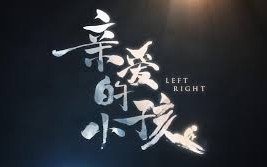
Recap Chinese Drama "Left Right 2022" Episode 22
-
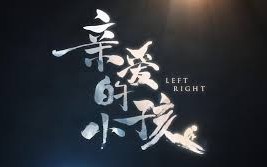
Recap Chinese Drama "Left Right 2022" Episode 21
-
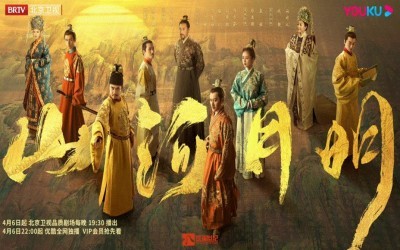
Recap "The Imperial Age" Episode 20
-
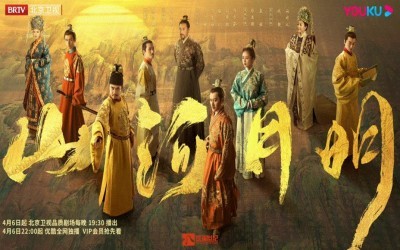
Recap "The Imperial Age" Episode 19
-
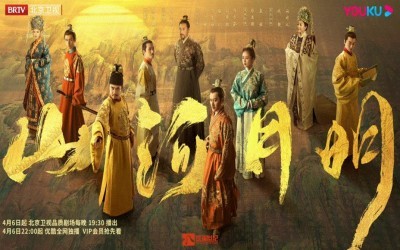
Recap "The Imperial Age" Episode 18
-
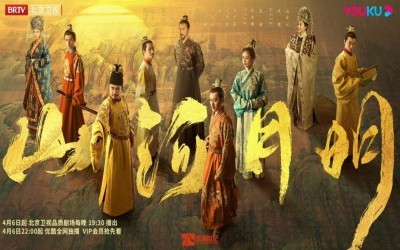
Recap "The Imperial Age" Episode 17
-
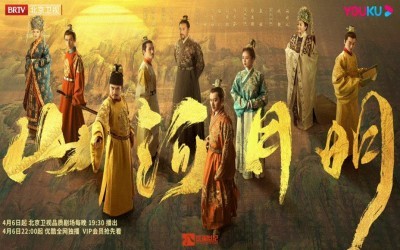
Recap "The Imperial Age" Episode 16
-
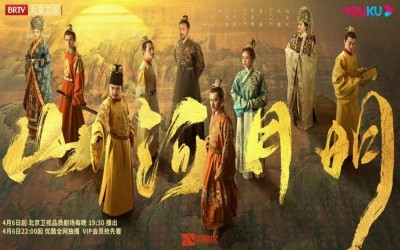
Recap "The Imperial Age" Episode 15
-
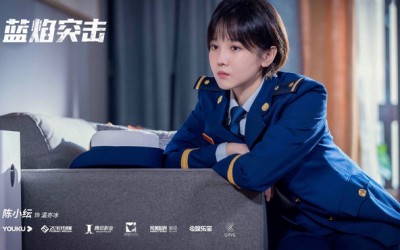
Recap Chinese Drama "Blue Flame Assault" Episode 6
-
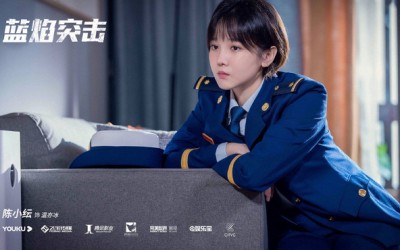
Recap Chinese Drama "Blue Flame Assault" Episode 5
-

Recap Chinese Drama "Under the Skin" Ep 20 (Final Episode)
-

Recap Chinese Drama "Under the Skin" Ep 19
Genres
- Accident
- Action
- Adventure
- Alien
- Amnesia
- Ancient legend
- Animals
- Animation
- Arthouse
- Artificial Intelligence
- Award Winning
- Based on a Comic
- Based on True Story
- Betrayal
- Biography
- BL
- Bodyguard
- Bromance
- Business
- Chambara
- Childhood
- Christmas
- Cohabitation
- Cold Man
- Coma
- Comedy
- Concert
- Conglomerate
- Conspiracy
- Contract Relationship
- Corruption
- Crime
- Criminal
- Curse
- Dance
- Deity
- Demon
- Detective
- Disability
- Disaster
- Documentary
- Drama
- Eastern
- Educational
- Entertainment
- Environment
- Erotica
- Espionage
- Exorcism
- Exploitation
- Fairy
- Family
- Fantasy
- Fashion
- Feminism
- Food
- Foreign
- Friendship
- Game Developer
- Gangster
- Geishas
- Gore
- Goryeo Dynasty
- Grudge
- Gumiho
- Harem
- Hidden Identity
- Historical
- Horror
- Hostage
- Human
- Hypnotism
- Idol Drama
- Indie
- Instructional
- Investigation
- Jidai Geki
- Josei
- Kidnapping
- Kung Fu
- Law
- legal
- Lesbian
- LGBTQ+
- life
- Love Triangle
- Mafia
- Magic
- Manga
- Manhua
- Martial Arts
- Mature
- Medical
- melodrama
- Mermaid
- Military
- Miniseries
- Misunderstanding
- Monster
- Murder
- Music
- Musical
- Mystery
- Mythology
- Nature
- Neighbours
- Noir
- Novel
- Omnibus
- One shot
- Parody
- Phobia
- Poison
- police
- political
- Power Struggle
- Prison
- Professional
- Programmer
- psychiatry
- Psychological
- Reality
- Reality Show
- Reality TV
- Rebellion
- Religion
- Remake
- Republic
- Resurrection
- Revenge
- Rich Man
- Robot
- Romance
- RPG
- Rural
- Samurai
- Scholar
- School
- Sci-fi
- Seinen
- Serial Killer
- Short
- Sismance
- Sitcom
- Slapstick
- Slice of Life
- Society
- Soulmates
- Sports
- Supernatural
- Survival
- Suspense
- Swordsman
- Taiga drama
- Teamwork
- Tearjerker
- Teen
- Terrorist
- Thief
- Thriller
- Time Travel
- Tokusatsu
- Tomboy
- Tragedy
- Tragic Past
- Transmigration
- Trauma
- Treason
- Triad
- Underworld
- Unrequited Love
- urban drama
- Vampire
- Variety
- Variety show
- War
- Warrior
- Web Series
- Webtoon
- Werewolf
- Western
- Witch
- Workplace
- Wuxia
- Yakuza
- Yaoi
- Youth
- Yuri
- Zombie

